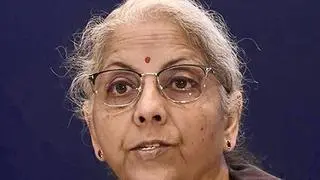Rural Development Minister, Mr Jairam Ramesh, has expressed concern over the diminishing role of public-funded research and development in agriculture.
The appetite for public-funded R&D collaboration like the Consultative Group on International Agricultural Research (CGIAR), which ushered in the Green Revolution in the 1960s, has almost vanished.
“We seemed to have a touching faith in the private agri-companies to deliver goods. This faith is misplaced and has a devastating social consequence as well,” Mr Ramesh told parliamentarians of Finland in Helsinki on Wednesday. He hoped that the spirit of CGIAR is recaptured to make agriculture more sustainable in the current context. CGIAR-type R&D networks need to be fostered in other areas, such as renewable energy, he added.
Stating that faster economic growth was essential to lift millions out of poverty, Mr Ramesh said the challenge lies in finding economic drivers, which will acknowledge growing aspirations for a higher standard of living.
The global negotiations must address the matter of sharing of atmospheric resources or ecological space on an equitable basis. This is something, almost the entire world, except the US, accepts in some form or the other, Mr Ramesh said.
The Governments, at national level, must provide economic and other incentives to steer economy towards sustainable consumption that will, in turn, lead to sustainable prosperity, Mr Ramesh said.
On the climate talks, Mr Ramesh said the logjam could be potentially broken with the convergence of views of Prime Minister, Dr Manmohan Singh and German Chancellor, Ms Angela Merkel on per capita emissions.
He, however, added a caveat saying that “countries will converge to per capita emission levels at different levels of per capita income and this will make a difference to living standards. This requires some further thought”.
In his address at the G8 plus 5 meeting in Germany in July 2007, Dr Singh had said “We are determined that India's per capita GHG emissions are not going to exceed those of developed countries even while pursuing policies of development and economic growth”.
Later that year, Ms Merkel called for an approach based on “per-capita emissions increasingly converging worldwide at a level compatible with our shared climate protection goal,” arguing that “such a process of long-term convergence offers all countries scope to develop. It does not overburden any, yet ensures that the necessary action on the climate issue is taken. By this means
the principle that countries have shared but differing responsibilities can be translated into political and economic reality."








Comments
Comments have to be in English, and in full sentences. They cannot be abusive or personal. Please abide by our community guidelines for posting your comments.
We have migrated to a new commenting platform. If you are already a registered user of TheHindu Businessline and logged in, you may continue to engage with our articles. If you do not have an account please register and login to post comments. Users can access their older comments by logging into their accounts on Vuukle.